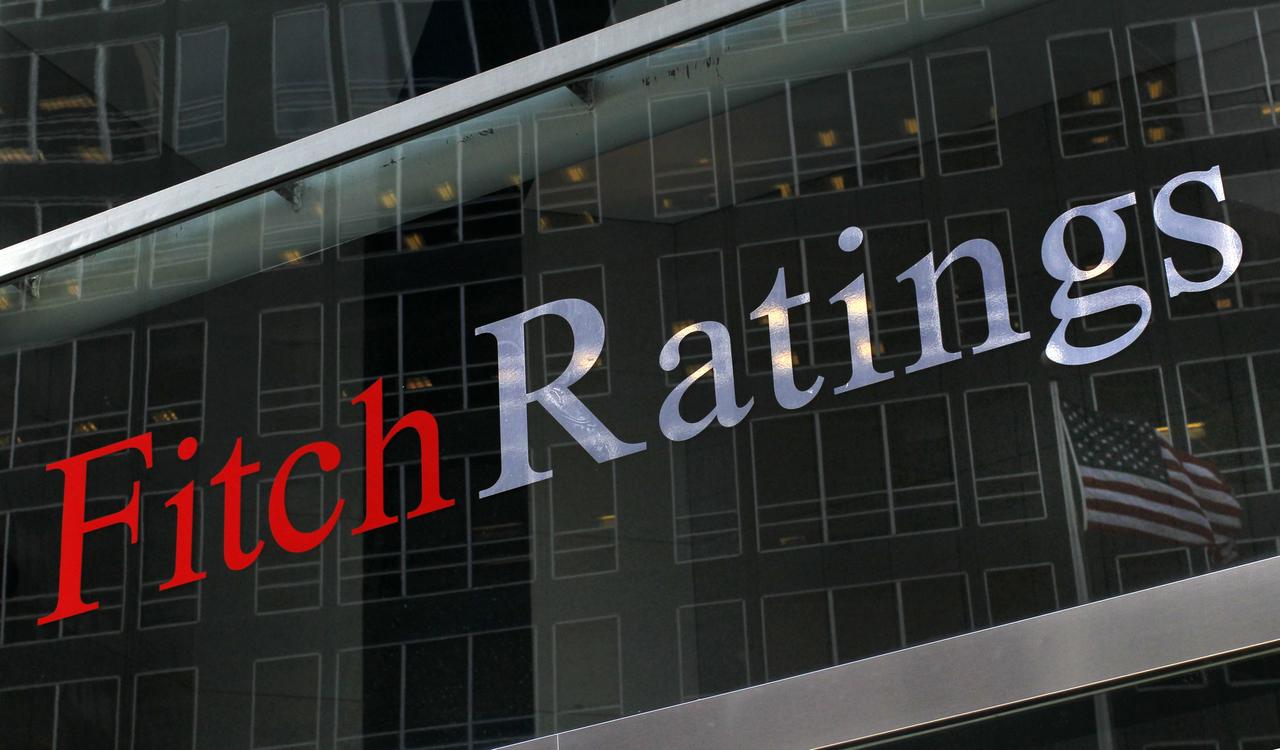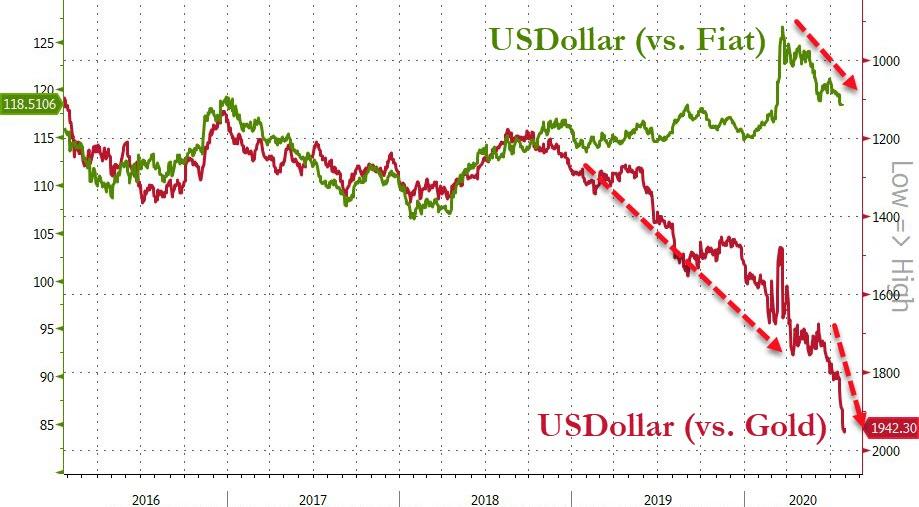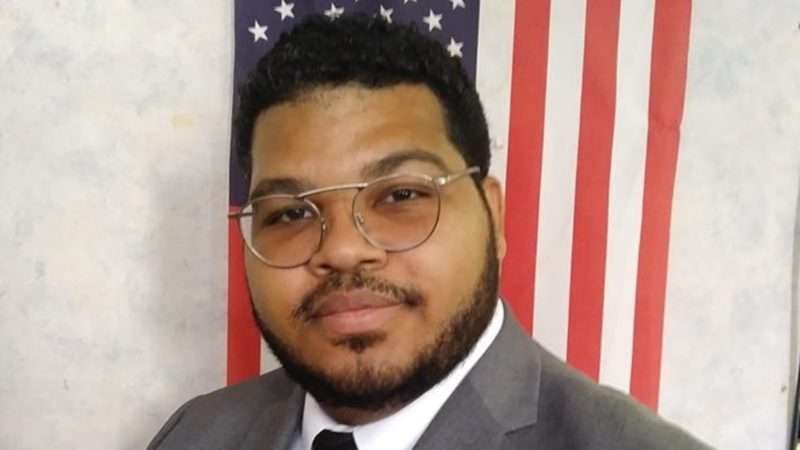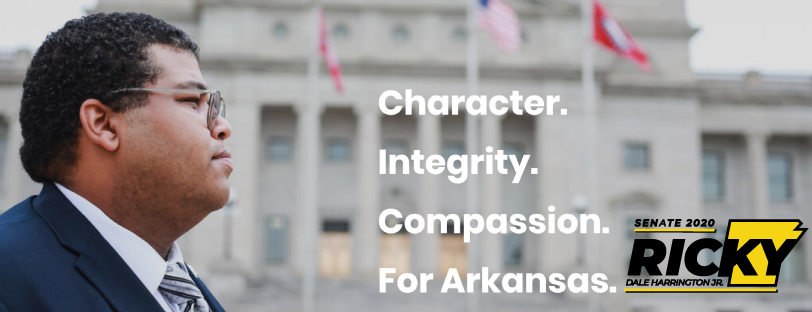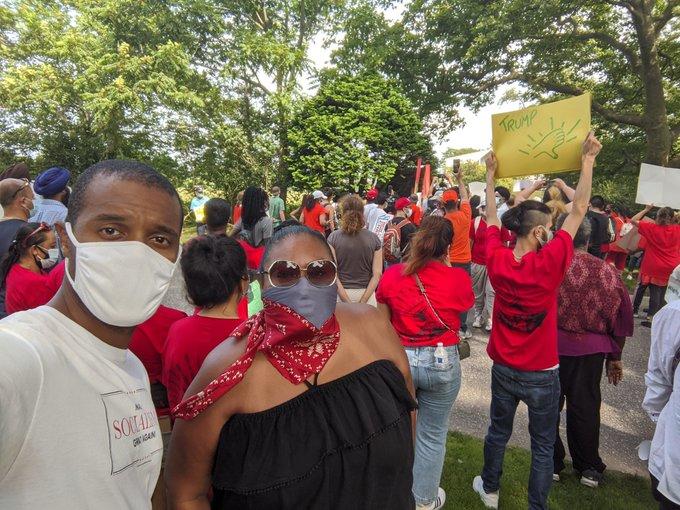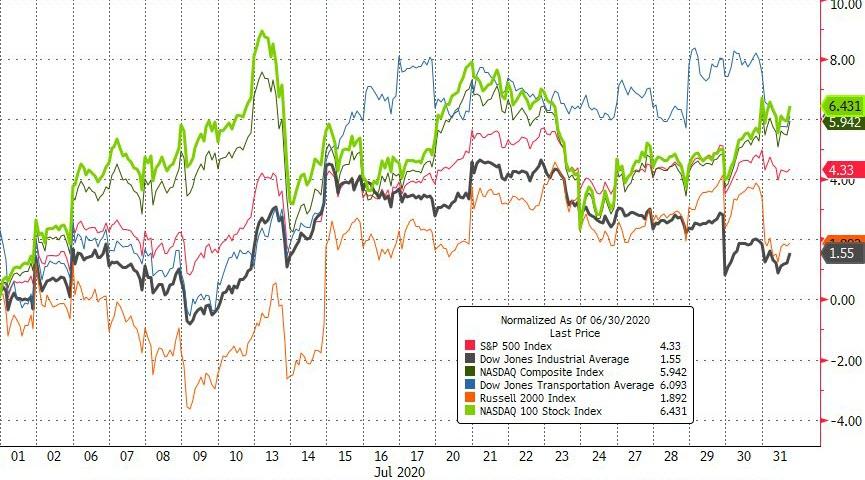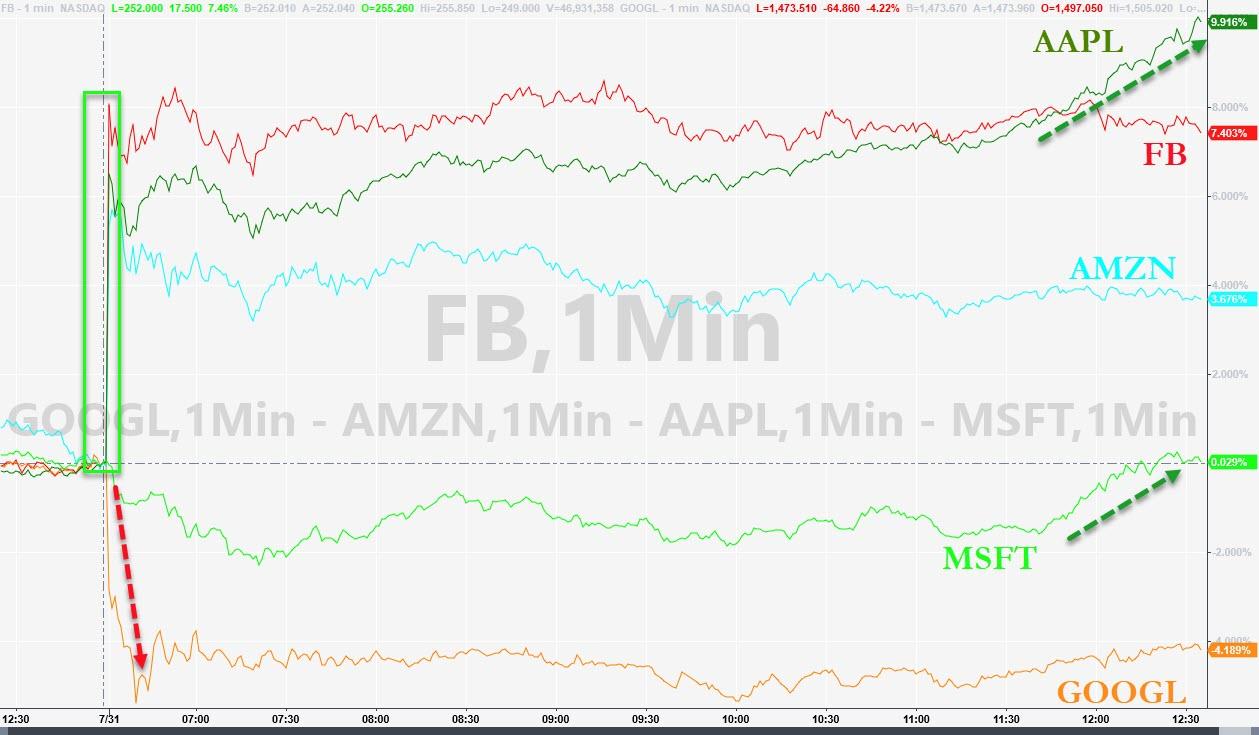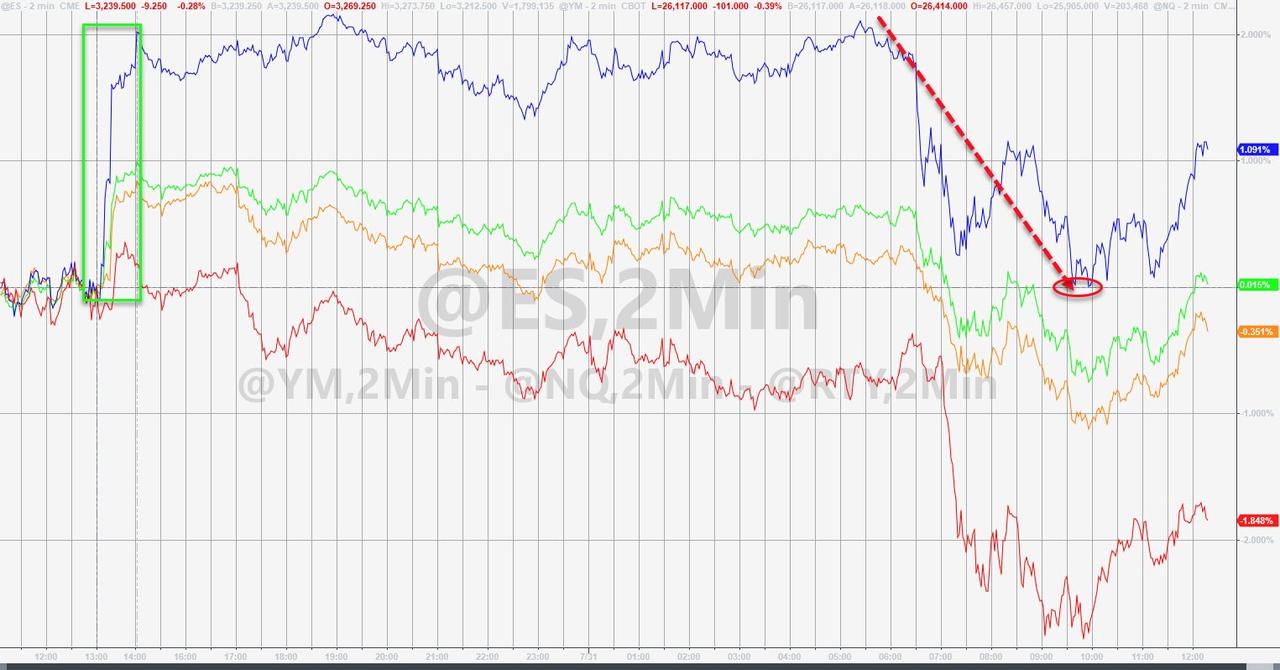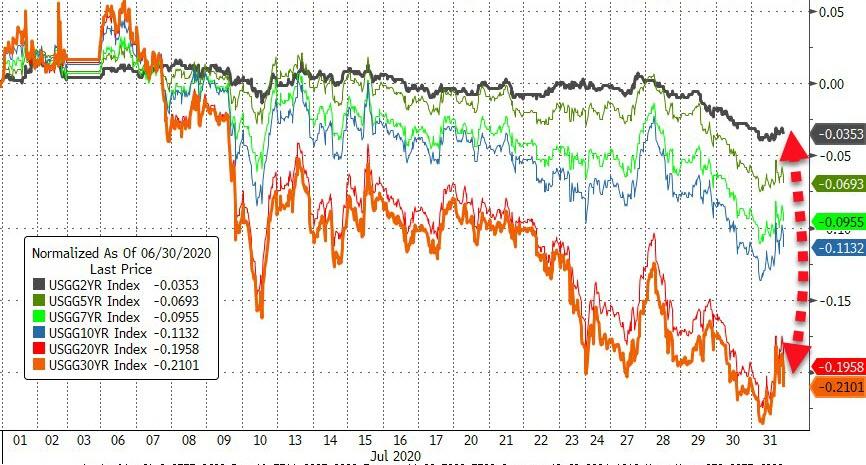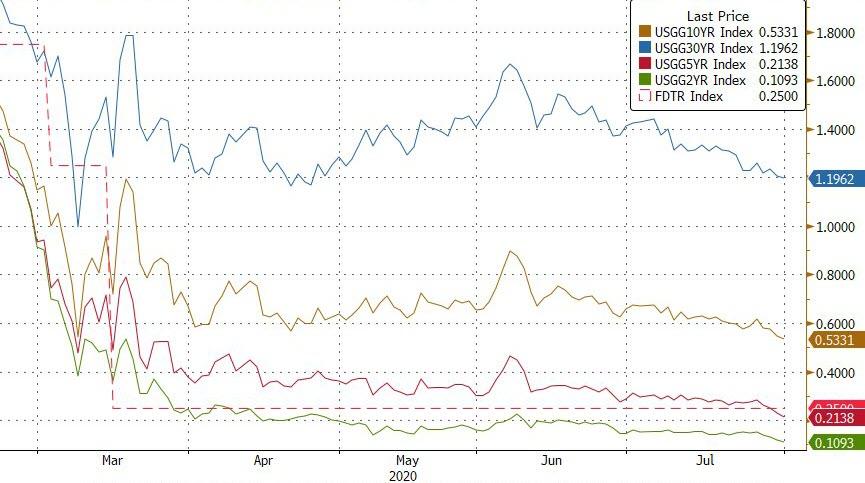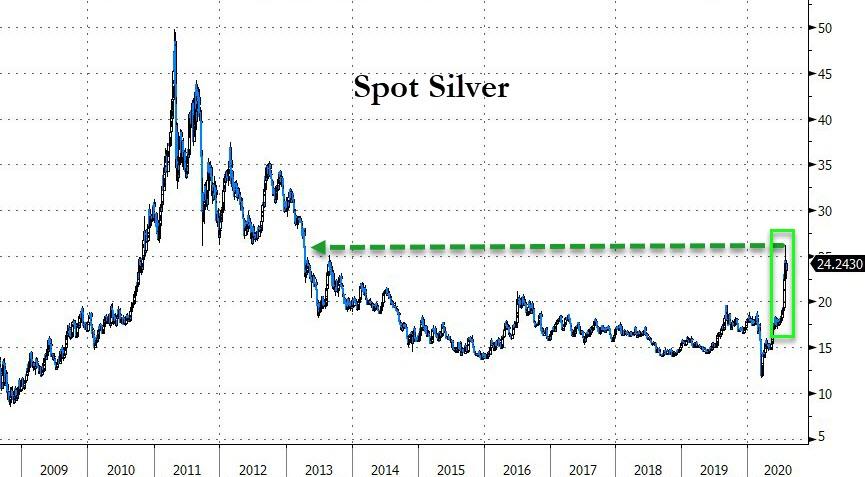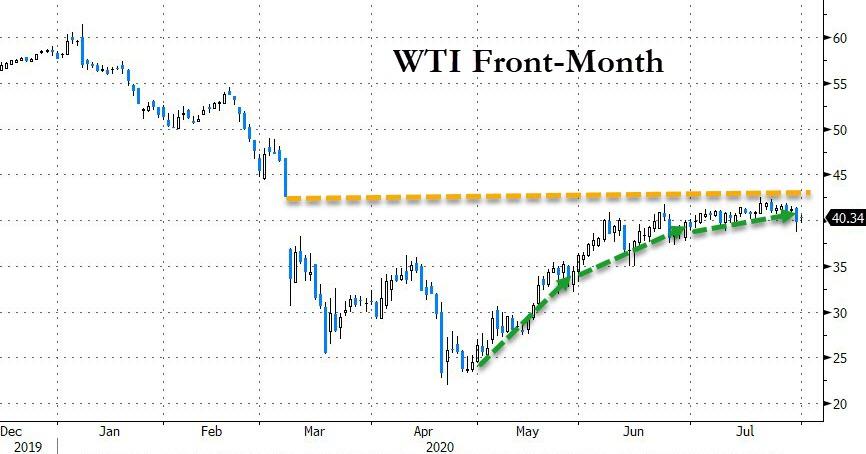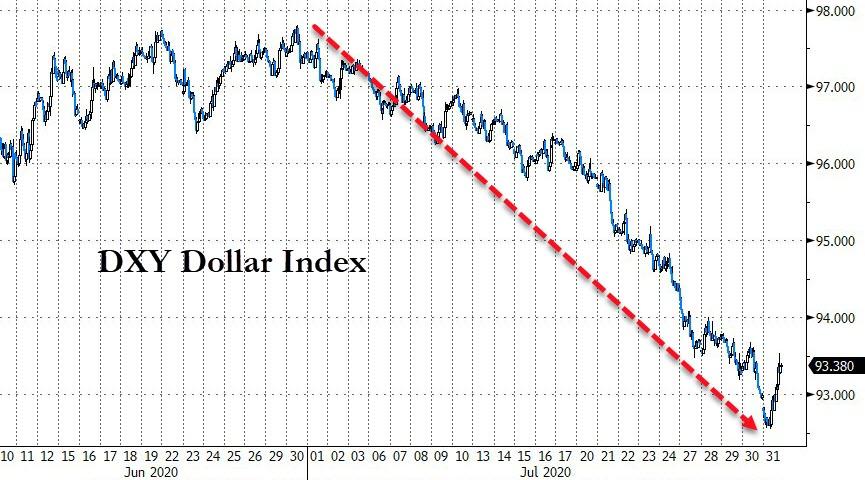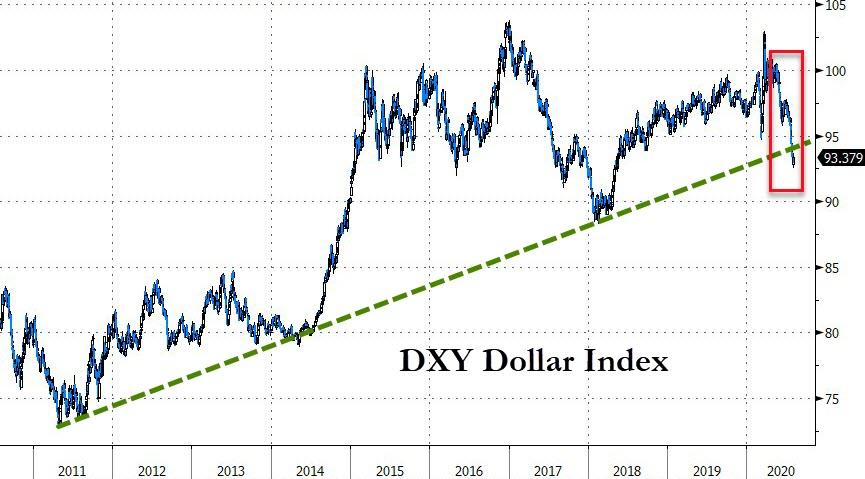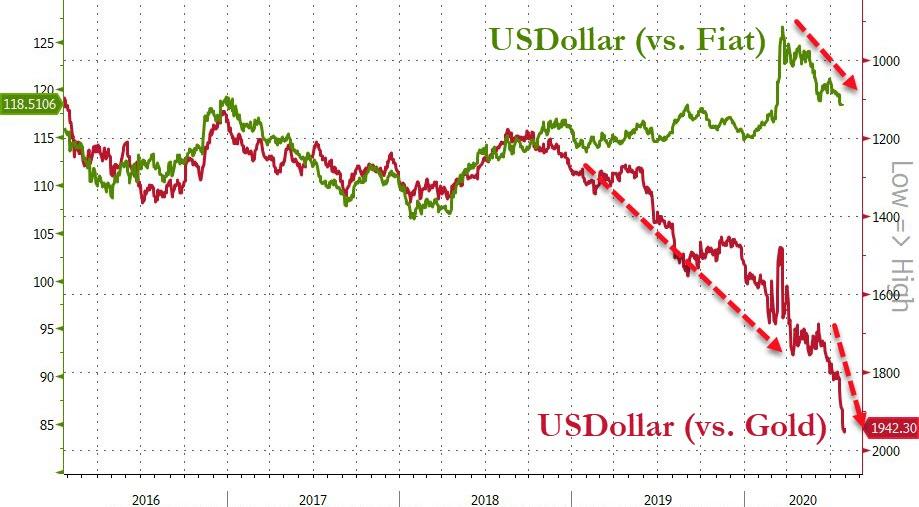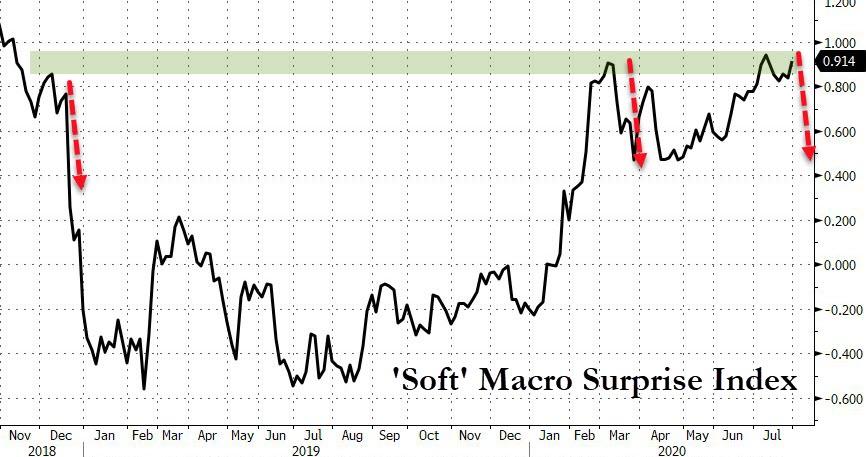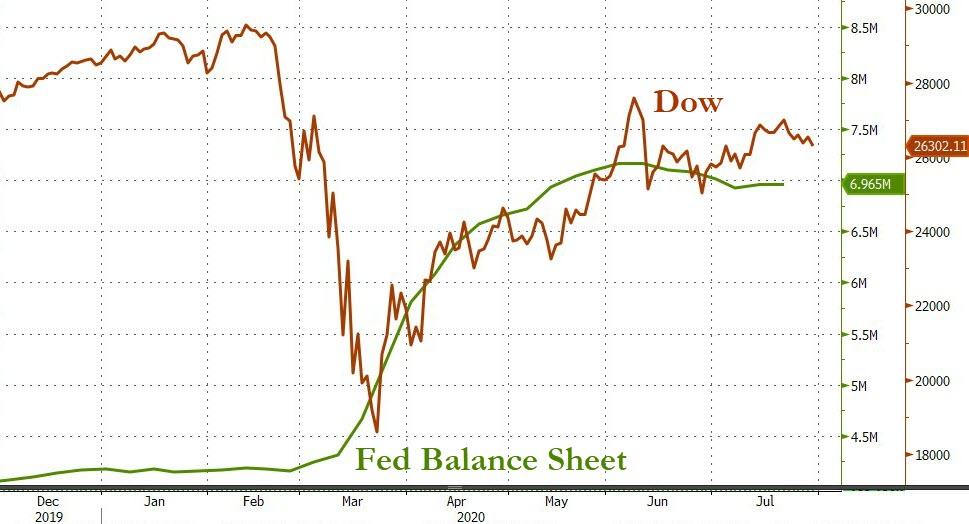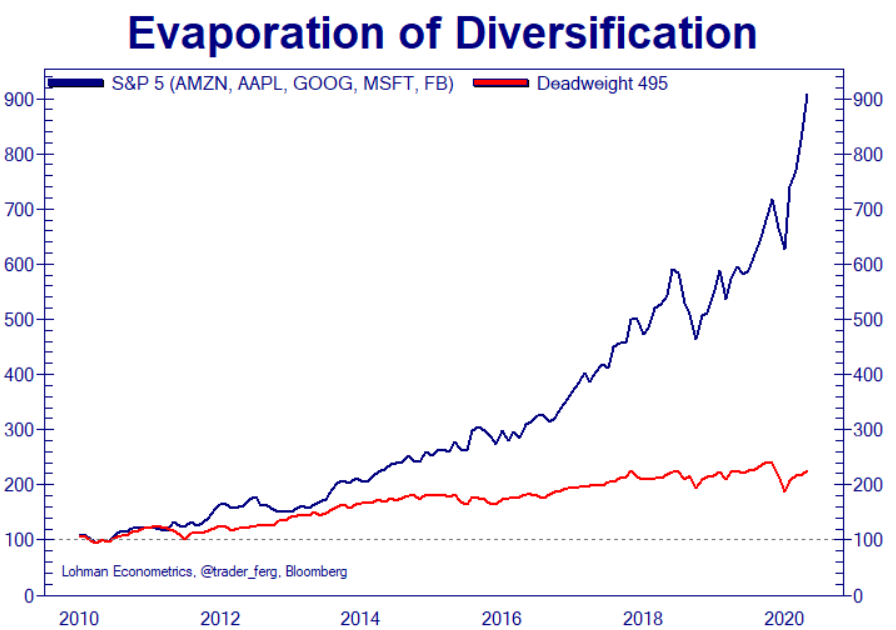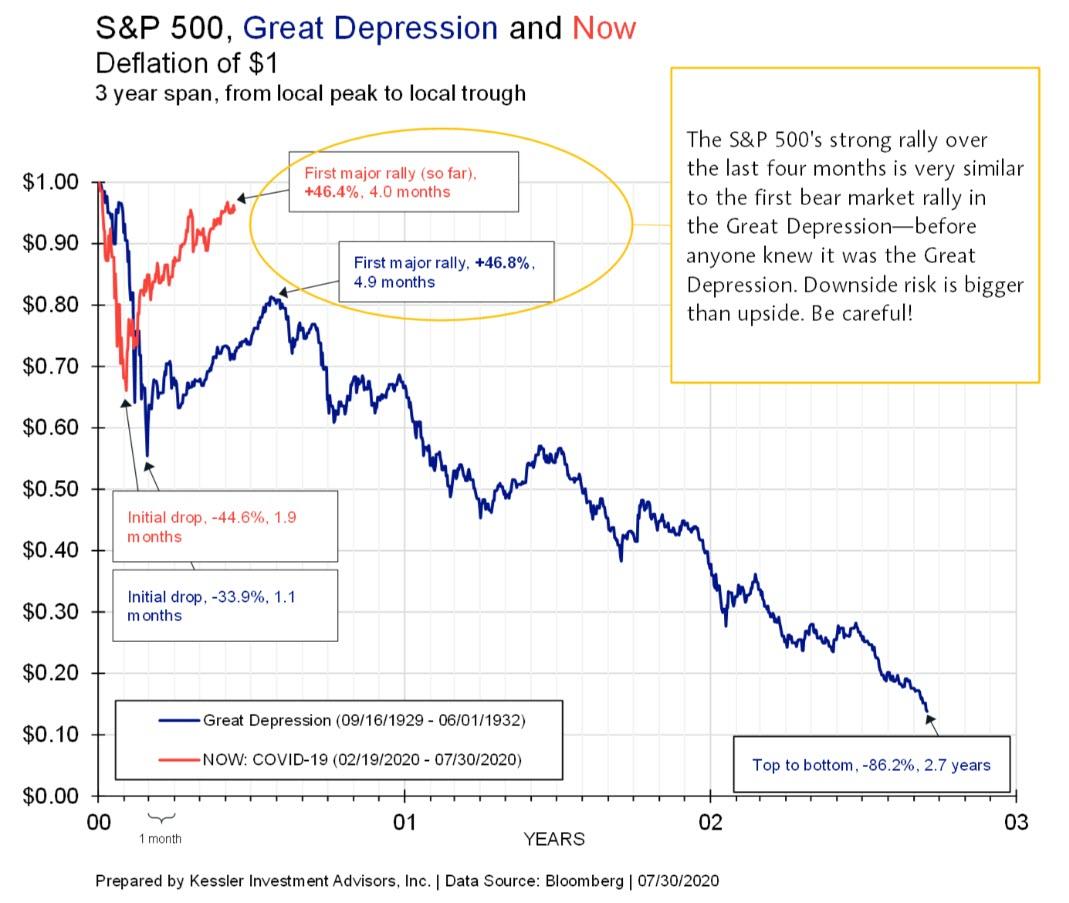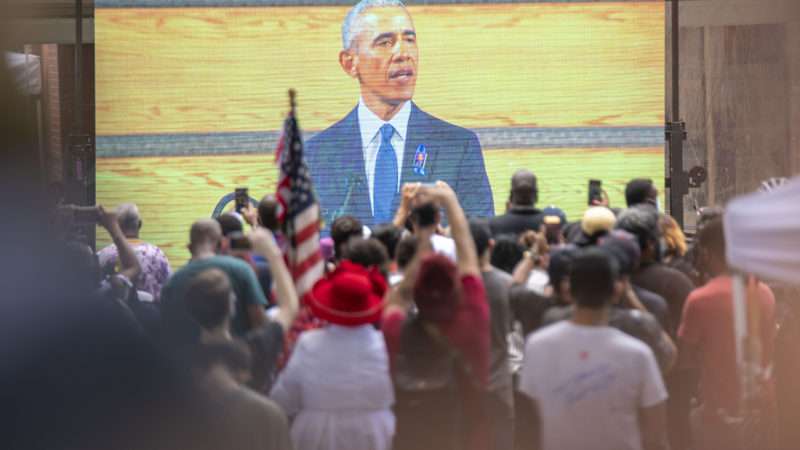
During his eulogy yesterday for Rep. John Lewis (D–Ga.), a leading figure in the civil rights movement, former President Barack Obama expressed support for eliminating the Senate filibuster, which he called a “Jim Crow relic.” That position contradicted the one Obama took as senator in a chamber controlled by Republicans, and his historical framing was more than a little misleading. The filibuster, which in its current form prevents a vote on legislation without 60 votes to cut off debate, was first used in 1837 during the controversy over the Second Bank of the United States, and it has been deployed many times since for reasons having nothing to do with government-enforced white supremacy.
It is true that segregationists used the filibuster to oppose civil rights legislation in the 1950s and ’60s. Most famously, Sen. Strom Thurmond, then a Democrat representing South Carolina, spoke for more than 24 hours to impede passage of the Civil Rights Act of 1957, which aimed to protect the voting rights of African Americans in the South. Southern legislators—including Sen. Robert Byrd (D–W.Va.), an ardent defender of Senate traditions—also used the filibuster in an unsuccessful attempt to block the Civil Rights Act of 1964, which banned segregation in public schools and racial discrimination in voting requirements, employment, and places of public accommodation.
But that is just a snapshot of the filibuster’s potential uses, which can be either malign or beneficial, depending on the target and one’s view of the legislation’s merits. Just as the principle of federalism does not qualify as a “Jim Crow relic” simply because segregationists invoked it, the filibuster cannot be deemed irredeemable simply because they found it useful. Like other restraints on the majority’s will—including those mandated by the Constitution, such as requiring bicameral approval of legislation and the president’s assent in the absence of a congressional supermajority—the filibuster is an ideologically neutral obstacle that makes it harder to pass laws. Whether you think its net impact is good or bad is apt to depend not only on which party happens to be in power but also on your general view of the work that Congress does.
The filibuster was not part of the original constitutional design. It arose from a rule change that Vice President Aaron Burr urged in 1805. As George Washington University political scientist Sarah Binder explained during a 2010 Senate hearing, Burr thought the chamber’s rule book was cluttered with unnecessary provisions, including what was known as the “previous question” motion, which it turned out could be used to close debate with a simple majority. Unlike the Senate, the House of Representatives retained that rule.
“Today, we know that a simple majority in the House can use the rule to cut off debate,” Binder said. “But in 1805, neither chamber used the rule that way. Majorities were still experimenting with it. And so when Aaron Burr said, ‘Get rid of the previous question motion,’ the Senate didn’t think twice. When they met in 1806, they dropped the motion from the Senate rule book.” In other words, “the filibuster was created by mistake.”
However inadvertent its inception, the filibuster has proven useful to legislators of various parties during the last two centuries, as its persistence demonstrates. And while the very term filibuster—derived from the French flibustier, referring to pirates in the West Indies—suggests a lawless hijacking, there is nothing illegitimate about the tactic, since it is authorized by the Senate’s rules.
When they are in the majority, senators may complain that the filibuster is undemocratic. But the same could be said of many constitutional provisions that prevent a legislative majority from doing whatever it wants, including the restrictions imposed by the Bill of Rights, not to mention the basic principle that Congress may exercise only those powers it has been explicitly granted.
Three decades elapsed between the Senate’s rule change and the first recorded use of the filibuster. In 1837, Whig senators used the tactic in an attempt to keep Democrats from expunging an 1834 resolution that censured President Andrew Jackson for removing federal funds from the Second Bank of the United States. The Democrat-controlled Senate nevertheless nullified the resolution by a five-vote margin.
While “there were very few filibusters before the Civil War,” Binder noted, they were common by the 1880s, deployed against civil rights legislation but also against election law changes, nominations, and the appointment of Senate officers. In 1917, Woodrow Wilson, outraged by Republican senators’ filibustering of his proposal to arm merchant ships as a deterrent to German U-boats, demanded reform to disempower this “little group of willful men.” The Senate responded by adopting Rule 22, which empowered a two-thirds majority to cut off debate—a compromise between Democrats who favored a simple-majority rule and Republicans who resisted any change. In 1975, the Senate reduced the majority required for cloture from two-thirds to three-fifths, or from from 67 to 60 votes in a chamber with 100 members.
“Adoption of Rule 22 occurred because Wilson and the Democrats framed the rule as a matter of national security,” Binder noted. “They fused procedure with policy, and used the bully pulpit to shame senators into reform.” While that description suggests senators who opposed American involvement in World War I were engaged in shameful obstruction, a more skeptical view of that senseless and disastrous conflict suggests otherwise, and the defeat of the Wilson-backed bill inspired a chapter of Profiles in Courage.
Whatever your view of Wilson or World War I, it is indisputable that senators have used the filibuster for what they sincerely believed were sound, public-spirited reasons going beyond petty partisan interests. To take an example that appeals to libertarians, Sen. Rand Paul (R–Ky.) protested the Obama administration’s policy of “targeted killing” via drone with an old-fashioned 13-hour talking filibuster against the nomination of CIA Director John Brennan in 2013. Those of a different political persuasion may admire the eight-and-a-half-hour filibuster that Sen. Bernie Sanders (I–Vt.) pulled off in 2010 to protest the extension of federal tax cuts.
Both Democrats and Republicans have used filibusters or the threat of them to block the nomination of judges and justices whose records they found alarming. That option was largely foreclosed in 2013, when a Democrat-controlled Senate, frustrated by Republican opposition to Obama’s judicial picks, approved a rule that allowed a simple majority to end debate on almost all presidential nominations except for the Supreme Court—an exception that was eliminated four years later, after Republicans regained control of the Senate in 2014 and Donald Trump was elected president in 2016. Both changes were accomplished via the “nuclear option,” a parliamentary maneuver that allows a simple majority to approve rule changes.
Majority Leader Harry Reid (D–Nev.), who had opposed the nuclear option as a threat to venerable Senate norms when George W. Bush was president and Republicans ran the Senate, switched positions in 2013. So did Minority Leader Mitch McConnell (R–Ky.), who as the majority whip during the Bush administration had threatened to make the rule change that Reid resisted.
McConnell warned Democrats that they would regret their shortsighted move. And presumably they did once McConnell, converting again, greased the skids for Trump’s Supreme Court nominees and the president began reshaping the federal judiciary. As the Cato Institute’s Gene Healy noted in 2013, “Serious political movements shouldn’t try to knock down all the barriers to power whenever they temporarily enjoy it, because nothing is permanent in politics save the drive for more federal power, and the weapons you forge may someday be detonated by the other side.”
When politicians are in the mood to defend filibusters (i.e., when their party is not in charge of the Senate), they often say that preserving the tactic helps ensure that the minority’s views receive adequate consideration as legislation is crafted. Bipartisanship for its own sake is a dubious goal. Joe Biden, who is trying to replace Donald Trump as the guy who gets to make nominations without worrying about filibusters, has famously cited his collaboration with Strom Thurmond—yes, the same senator who tried to block a civil rights bill with the longest filibuster in U.S. history—as an inspiring example of bipartisanship. That collaboration produced the Comprehensive Crime Control Act of 1984, a godawful piece of legislation that set the pattern for a decade of indiscriminately punitive criminal justice policies.
Still, there is something to be said for mechanisms that require the majority to slow down, reflect a bit, and maybe even read legislation before passing it. Biden used to think so. Last February, while he was competing for the Democratic nomination, he said he was against eliminating filibusters. But this week, contemplating a victory that looks increasingly likely, he is having second thoughts.
Despite his adulation of compromise and consensus, Biden now thinks it may be time to remove this impediment to presidential agendas. “It’s going to depend on how obstreperous [Republicans] become,” Biden told reporters on Monday. “But I think you’re going to just have to take a look at it.”
The situational ethics of filibusters could be seen as evidence that the time-honored tradition is nothing more than a tricky maneuver that members of both major parties praise when it’s convenient and condemn when it’s not. But the relevant question is whether that tricky maneuver, on balance, gives us better or worse government. When you think about the gratuitous, pernicious, and blatantly unconstitutional legislation that Congress manages to pass even when the filibuster option is available, it is hard to imagine that eliminating this obstacle would improve the situation.
from Latest – Reason.com https://ift.tt/33auveZ
via IFTTT


